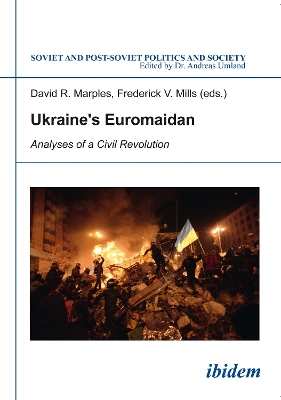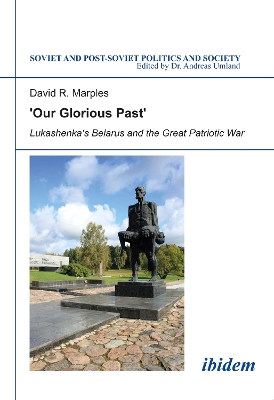Soviet and Post-Soviet Politics and Society
2 total works
Ukraine`s Euromaidan - Analyses of a Civil Revolution
by David R. Marples and Frederick V. Mills
Published 8 December 2021
The papers presented in this volume analyze the civil uprising known as Euromaidan that began in central Kyiv in late November 2013, when the Ukrainian president Viktor Yanukovych opted not to sign an Association Agreement with the European Union, and continued over the following months. The topics include the motivations and expectations of protesters, organized crime, nationalism, gender issues, mass media, the Russian language, and the impact of Euromaidan on Ukrainian politics as well as on the EU, Russia, and Belarus. An epilogue to the book looks at the aftermath, including the Russian annexation of Crimea and the creation of breakaway republics in the east, leading to full-scale conflict. The goal of the book is less to offer a definitive account than one that represents a variety of aspects of a mass movement that captivated world attention and led to the downfall of the Yanukovych presidency.
`Our Glorious Past` - Lukashenka`s Belarus and the Great Patriotic War
by David R. Marples
Published 8 December 2021
This timely book examines how the regime of President Aliaksandr Lukashenka has used the 'Great Patriotic War' (1941-45) as a key element in state and identity formation in Belarus. The campaign was discernible from 2003 and intensified after a rift with Russia that led to a re-examination of the earlier policy of close political and economic partnership. David R. Marples focuses in particular on the years 2009 and 2010, which commemorated two 65th anniversaries: the liberation of Minsk (3 July 1944) and the end of World War II in Europe (9 May 1945). Using a variety of sources, this unique book critically examines the official interpretations of the war from various angles: the initial invasion, occupation, the Partisans, historic sites and monuments, films, documentaries, museums, schools, and public occasions commemorating some of the major events. Relying on first-hand research, including books recommended by the Ministry of Education, state-controlled media and personal visits to the major historic sites and monuments of Belarus, Marples explains and measures the effectiveness of Lukashenka's program.
In outlining the main tenets of the state interpretation of the war years, the book highlights the distortions and manipulations of historical evidence as well as the dismissal of alternative versions as 'historical revisionism.' It assesses the successes and weaknesses of the campaign as well as its long term effects and prospects.
In outlining the main tenets of the state interpretation of the war years, the book highlights the distortions and manipulations of historical evidence as well as the dismissal of alternative versions as 'historical revisionism.' It assesses the successes and weaknesses of the campaign as well as its long term effects and prospects.

